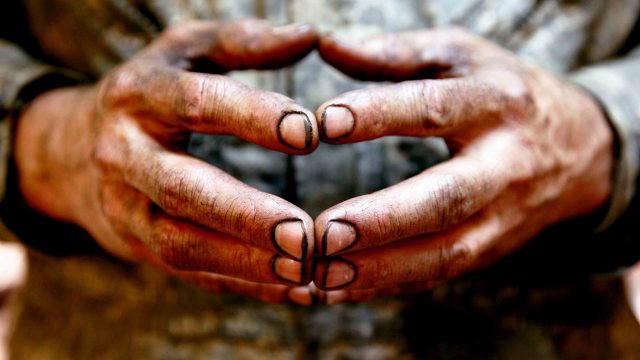These 104 countries restrict women’s right to work

When it comes to employment, there’s more than the gender pay gap holding women back. In most countries around the world, some jobs are by law reserved for men only and forbidden for women.
For its 2018 edition, the World Bank publication Women, Business and the Law focused on legal restrictions on female employment and found that this ‘gender employment gap’ existed in 104 out of 189 economies around the globe.
- In 40% of the all economies examined, women are restricted from working in certain industries (including mining, construction and transportation).
- In 30%, they are not allowed to work in jobs that are deemed hazardous, arduous or ‘morally inappropriate’.
- And in 15%, women are restricted from working the same night hours as men.
In absolute figures, this means that over 2.7 billion women are legally restricted from having the same employment choices as men.
One of the individual cases mentioned by the report is that of Svetlana Medvedeva, a Russian woman whose ambition to become a ship’s captain led her to study navigation. She graduated as a navigation officer, only to be told by one potential employer that, under Regulation No. 162, ship’s captain is one of the 456 jobs in Russia deemed too arduous, harmful or dangerous for women.
She sued the company but the court held that, as intended by said regulation, the protection of her reproductive rights was more important than her right to the job of her choice.
Svetlana received a nyet all the way up the judicial chain in Russia. Only after the U.N. Committee on the Elimination of the Discrimination of Women found in her favour did a Russian district court agree, in September 2017, that she had been discriminated against. However, the court did not order the company in question to hire Svetlana or to compensate her, and Regulation No. 162 remains in full effect in Russia.
This map, produced by The Economist, provides a glimpse of some of the specific restrictions in selected countries.

Probably falling under the ‘morally inappropriate’ category:
- In Argentina, women are forbidden to distil or sell alcohol.
Possibly examples of the ‘arduous’ category:
- In Guinea, women are restricted from working with certain hammers.
- In Russia, women can’t drive trains.
- In Moldova, women cannot drive buses with more than 14 seats.
- In Bangladesh, women are forbidden from working underwater.
- In Kazakhstan, women are not allowed to cut, eviscerate or skin cattle.
- In Angola, women may not work in gas production.
These must be too ‘hazardous’ for women (esp. with regard to their reproductive capacity):
- In Egypt, women are restricted from working with fertilisers, insecticides and hormones.
- In Belarus, women cannot work with pesticides.
- In China, women may not perform cold-water operations while menstruating.
- In Azerbaijan, women are not allowed to work with sewage.
And finally, some night-time restrictions:
- In Nigeria, women are not allowed to work at night in gas works.
- In Bahrain, women may not install electrical power at night.
- In Malaysia, women can’t transport goods or passengers by road, rail, water or air at night.
Some restrictions apply in most of Africa, but not in a contiguous zone stretching from South Africa to Kenya; and in most of Asia, but not in Indonesia or Laos; in most of South America, but not Paraguay, Peru, Colombia and Suriname.
Most mature economies have no restrictions on female employment, but there are exceptions; notably France, the Czech Republic and Slovenia (insert Melania joke here).

Map by The Economist found here on the Twitter feed of Bryan Druzin, “law professor focusing on political and legal theory/unapologetic lover of maps and charts”. Second map found on the World Bank’s Women, Business and the Law blog, where you can access the full report on Women, Business and the Law (2018).
Strange Maps #910
Got a strange map? Let me know at [email protected].





